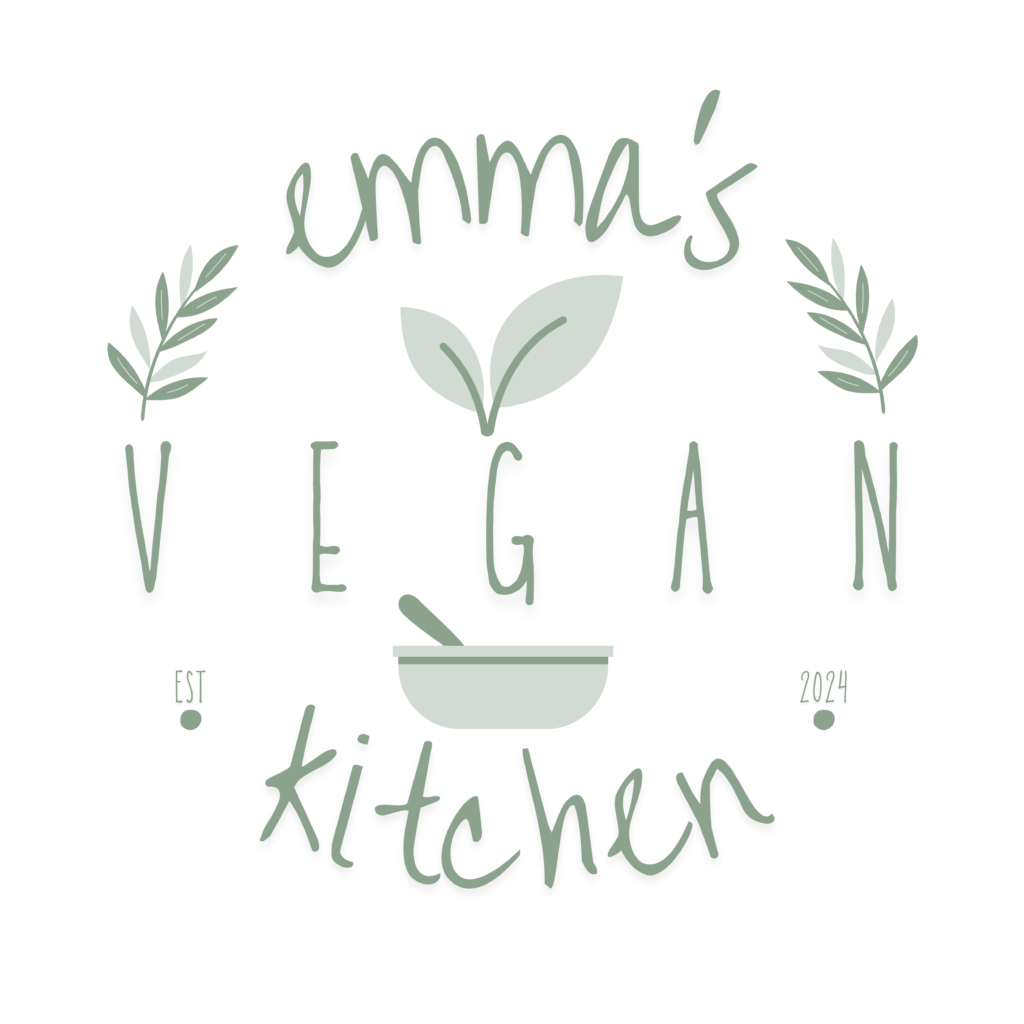hello, visitor. welcome to my blog! let me introduce myself. i’m emma, a 22-year-old vegan home cook and recipe developer living in greater manchester, england, with my boyfriend and hamster. after i graduated from my philosophy degree in july 2023, i worked as a cook for a vegan cafe & restaurant for a year, but i’m not too fond of the stress that can come along with the job! i now work as a freelance copyeditor and gcse mathematics tutor! when i am not working, you might find me reading, baking, playing the sims, listening to true crime podcasts on spotify, or trying out new recipes in the kitchen!
in terms of my journey with veganism, i became a vegetarian at 16 years old in the summer of 2018, then over two years on, in november 2020, i started following a plant-based diet and vegan lifestyle, to align my actions with the values i had held for a long time. my only regret is not making the change earlier. my ‘why?’ has always been the animals, although i am also passionate about environmental issues.
about emma’s vegan kitchen
i started this blog in september 2024 to give my passion for veganism and food a platform. as someone who loves creating in the kitchen, i share my own plant-based recipes for other vegans, aspiring vegans, or anyone wanting to eat more plant-based food. i aim to use simple, affordable, and wholefood ingredients as much as possible. my ultimate goal with this site is to potentially inspire someone in some positive way – however that might be! thanks for reading and i hope you stick around for a little longer!

working with me
please reach out to me if you’re interested in hiring a plant-based recipe developer! i am passionate about creating delicious vegan food and making it easier for others to do the same.
disclaimers
on privilege
veganism is a movement that has, at its heart, compassion, liberation and justice for all. this philosophy is not founded in privilege—rather, it stands for everything privilege is not. nonetheless, the ability to go vegan is a privilege. in no way am i attempting to undervalue the need to make real differences in our lives in accordance with what is right; however, not everyone has the means to choose what to consume, be that food or other goods. there are many reasons for this, including: limited access to groceries, housing and cooking equipment, as well as limited capacity on account of eating disorders, chronic illness, and so on. those are merely a few examples of complications. we must be sensitive to this, treat others with nothing but kindness, recognise our own privilege, and acknowledge that doing the best that one can do may look different for everyone.
those who experience real barriers to veganism: you are seen, heard, and not forgotten.
on intersectionality
as stated above, veganism is a movement that has, at its heart, compassion, liberation, and justice for all. this is not limited to compassion, liberation, and justice for animals.
white veganism is a form of veganism that prioritises the discontinuation of animal exploitation, treating human supremacy as the most important barrier to justice. in doing so, white veganism overlooks white supremacy and its role in creating systems of oppression for both humans and animals. white veganism is not true veganism. true veganism aims to highlight all systems of oppression and pull them to pieces. as a result, we cannot talk of justice for animals if we cannot recognise the need for justice within our own species—ignoring human oppression does absolutely nothing to help with animal oppression, nor does it take anything away from it.
animal activism should:
- avoid any comparisons to slavery or the holocaust – all cases of slaughter are horrific and valid, and need not be equated to prove their validity. here is what comparisons do:
- alienate whole groups of people from the fight for animal liberation, disregarding the contribution of people within these groups within the movement;
- perpetuate the ideals of white supremacists by likening specific groups of people to non-human animals;
- trigger individuals who experience intergenerational trauma; and
- ignore the reality of modern-day discrimination – the struggles of entire communities do not simply disappear because you no longer acknowledge them.
- recognise the intersectionality between all forms of oppression based on, but not limited to, race, socioeconomic status, and religion.
- promote more non-white vegans and vegans who recognise the intersectional nature of veganism.
- condemn white supremacy.
it is about time we educate ourselves and create a movement we can be proud of.
